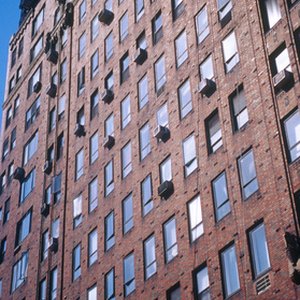
Owners’ legal relationship with their housing co-op is bound in large part by two key co-op legal documents: the by-laws and proprietary lease. Understanding the relationship and these documents can help you negotiate decisions that benefit you personally and your investment in the co-op.
Legal Relationship Between Owners and Their Co-Op
Legally, a housing cooperative is what is known as “juridic person,” usually a corporation, which owns a property -- often an apartment building -- and allows its owners to occupy a unit in the property according to the terms of a proprietary lease. That is, owners own part of the corporation that owns the building, not the unit itself (as is the case in a condo).
Owners have both their individual interests and the interests they share with the other owners in order to ensure that the co-op is run in a way that benefits everyone. For example, co-op owners have a shared interest in making sure the property’s exterior and common areas are well kept to maintain their property’s resale value. A board of directors elected by the owners, typically from among the owners themselves, makes decisions and acts on behalf of the co-op.
Understanding the By-Laws
The co-op’s by-laws define the terms of the relationship among the owners and with the board; the required co-op meetings, including the board’s powers and responsibilities; the eligibility to serve on the board; how the board is elected and what information the board must provide owners, in what format (e.g., reports, meetings, etc.) and how often, among other terms. The by-laws also state how owners can request co-op information from the board, the board’s obligation to provide this information and how to remove board members.
Review the Proprietary Lease
The proprietary lease establishes the terms by which the co-op allows an owner to live in a unit of the building it owns by virtue of being an owner. These terms include paying maintenance fees, occasionally outstanding fees called “special assessments” to pay for significant physical improvements to the building as well as the conditions upon which the lease can be transferred, for example, should the owner want to sell the shares associated with that unit.
The proprietary lease establishes a landlord-tenant relationship between the co-op and the owner, which makes it easier for co-ops to collect on unpaid maintenance fees than it would on condos whose owners don’t have the same obligation to their homeowners’ association to pay common fees.
Changes to the Owner-Co-Op Relationship
Changes to the owner-co-op relationships usually are made through amendments to these legal documents. Amendments must follow the approval procedure outlined in the by-laws, usually a meeting with a certain proportion of shareholders voting in favor of the amendment and cannot contradict the co-op’s articles of incorporation or state law, which always supersede the by-laws and proprietary lease. Since amendments are rare but have the potential to end up in court, it’s important to speak with a knowledgeable co-op lawyer before proposing the amendments.
References
Writer Bio
A writer since 2005, Elizabeth Ontaneda is a planner and consultant specializing in housing and organizational development. She has developed training curricula and written materials for the nonprofit Urban Homesteading Assistance Board and has presented at the Annual Conference of the Council of New York City Cooperatives and Condominiums. She holds a Master of Science in urban development planning from University College London.

